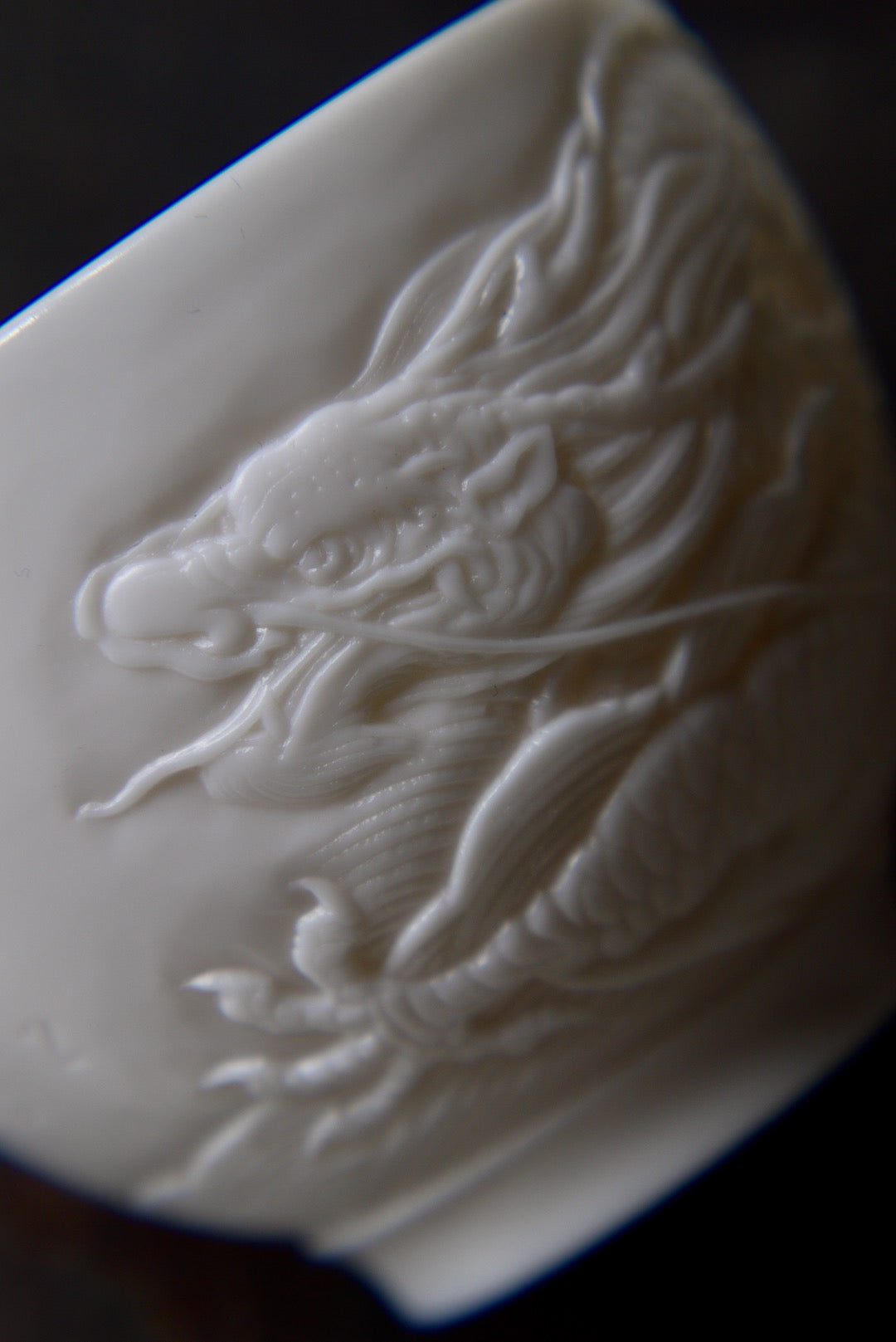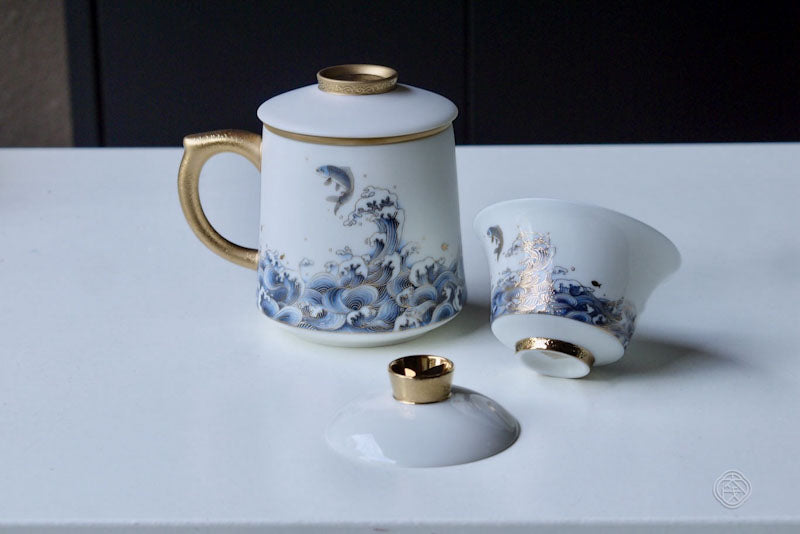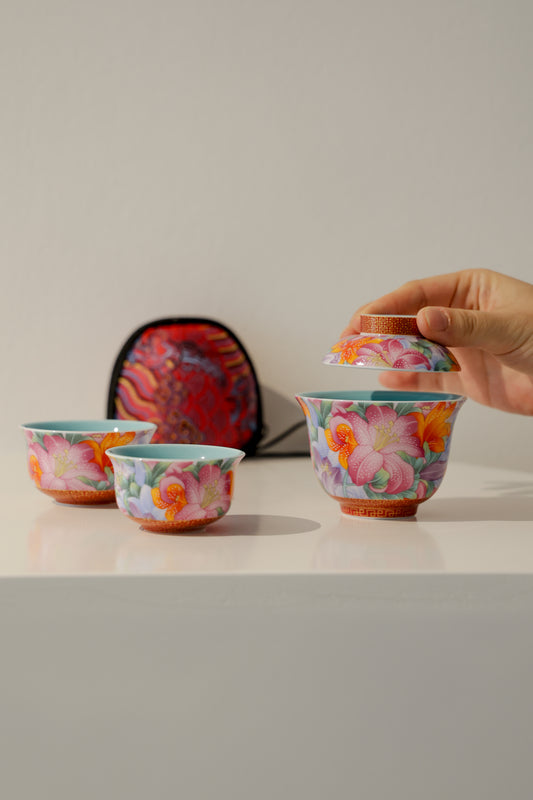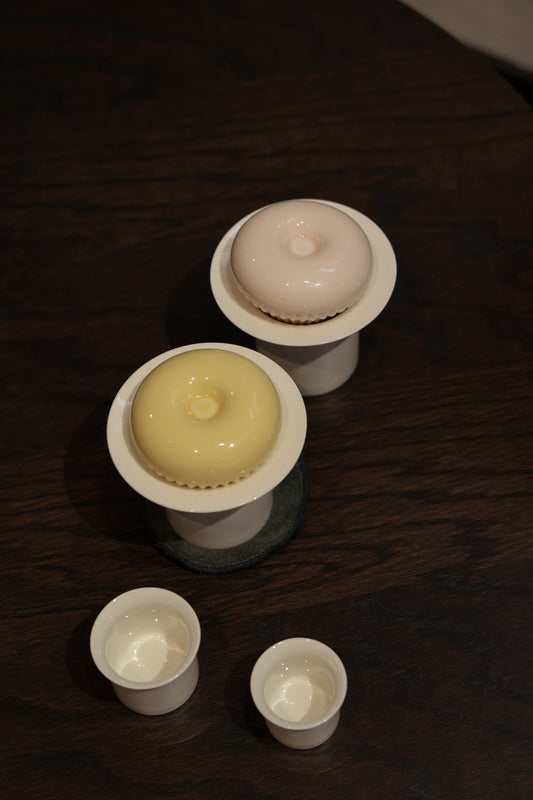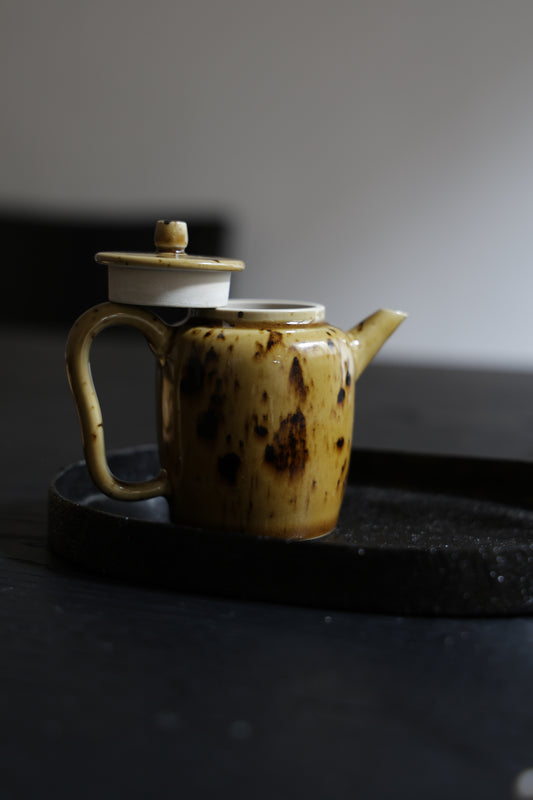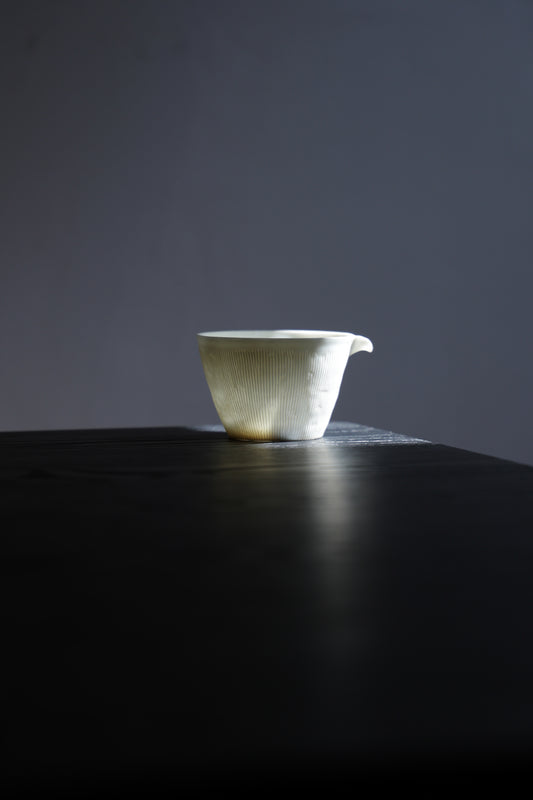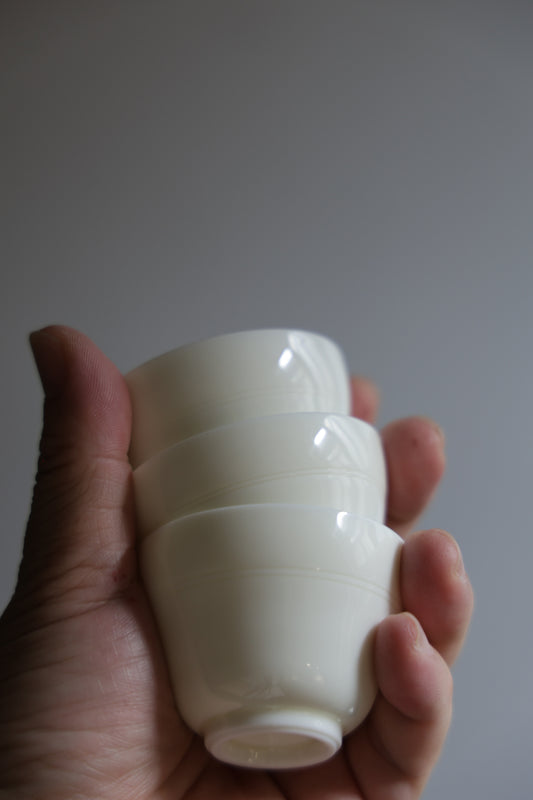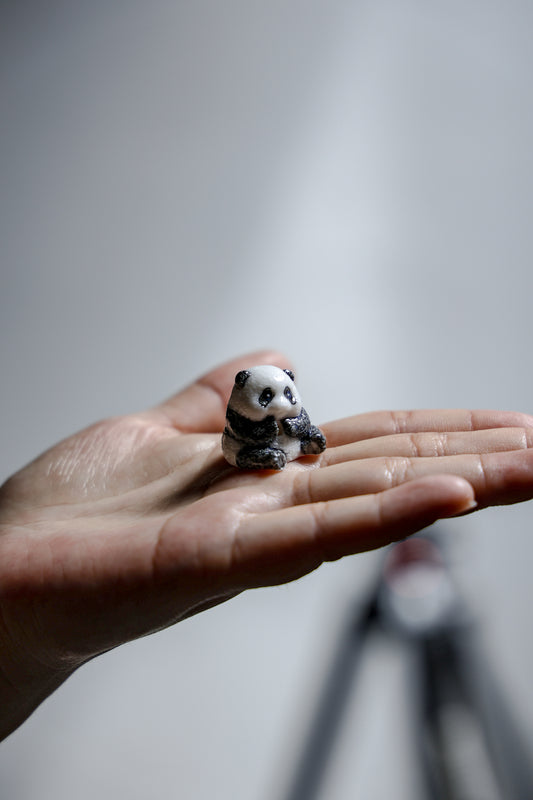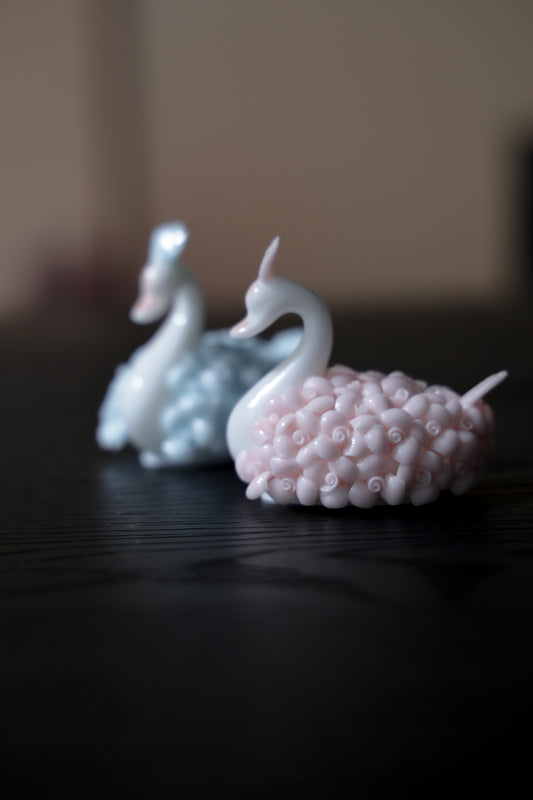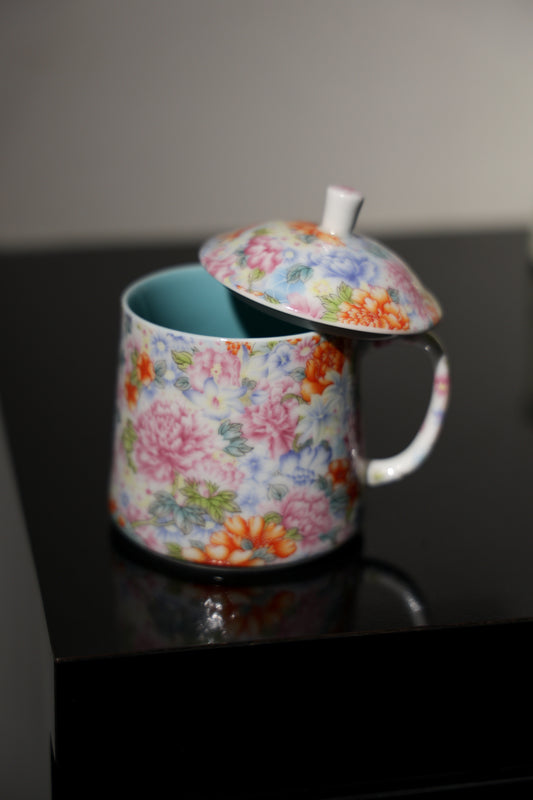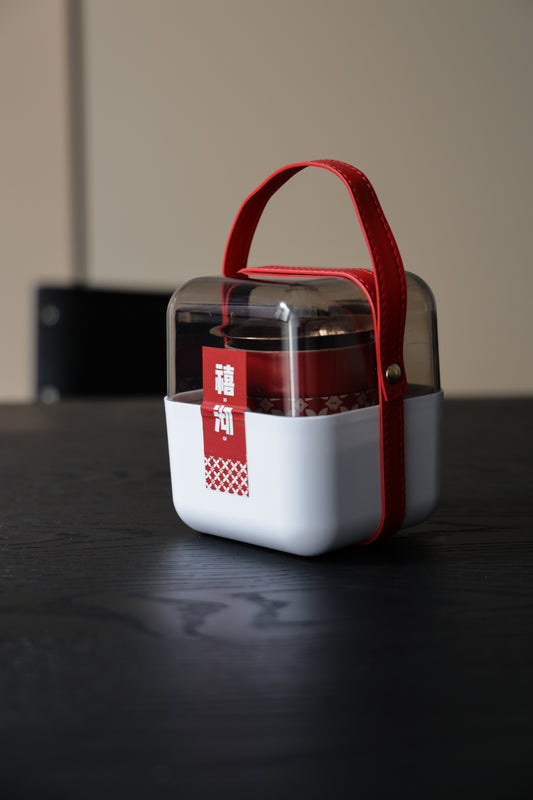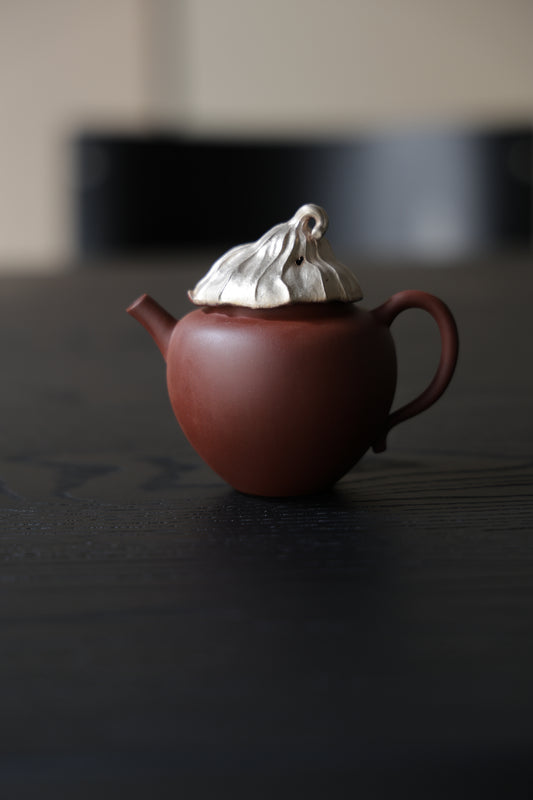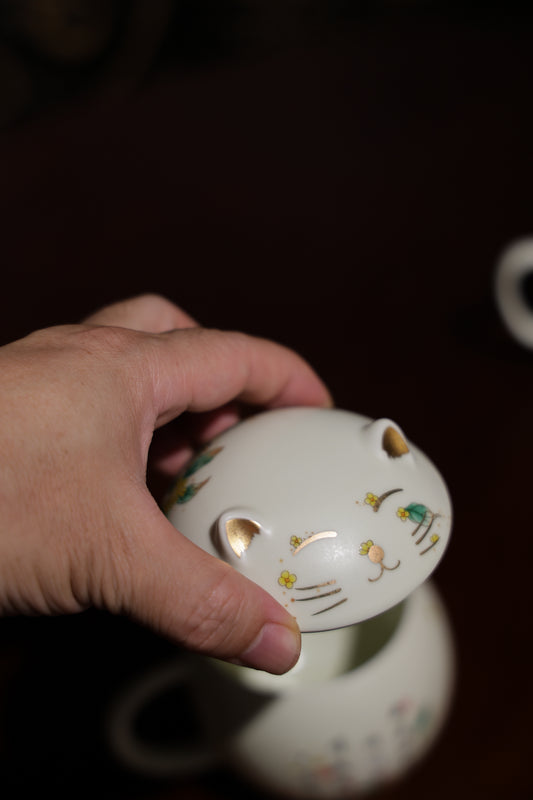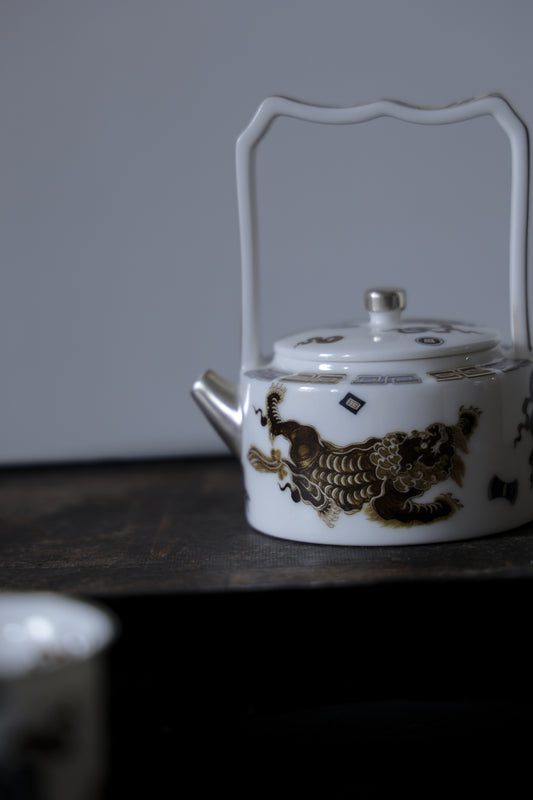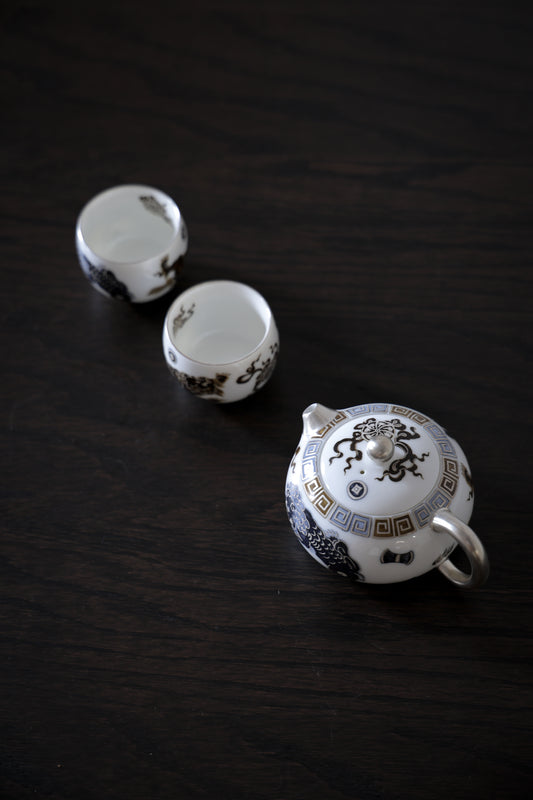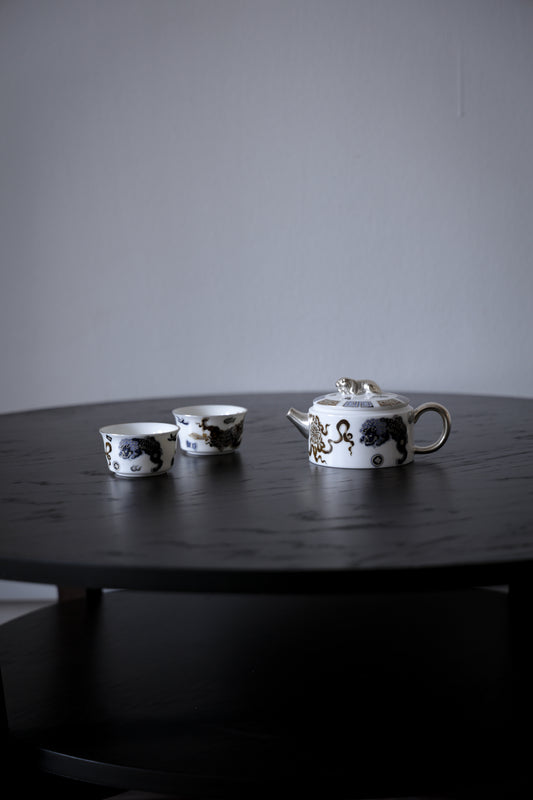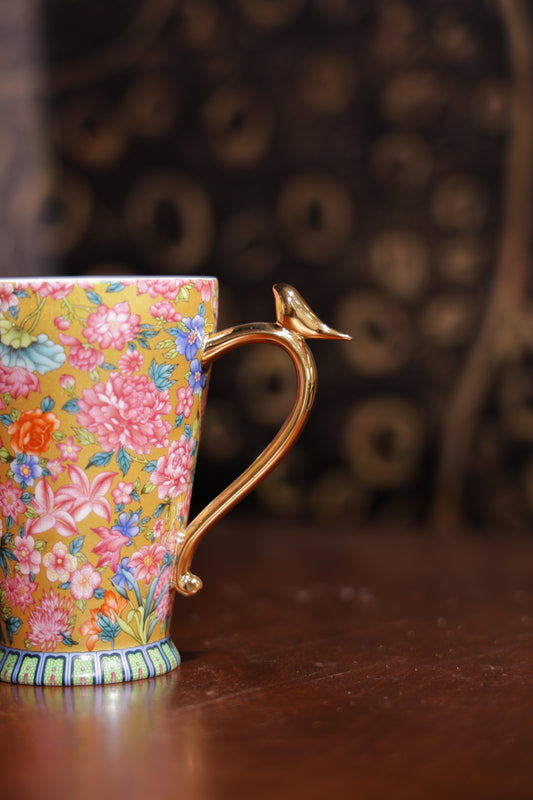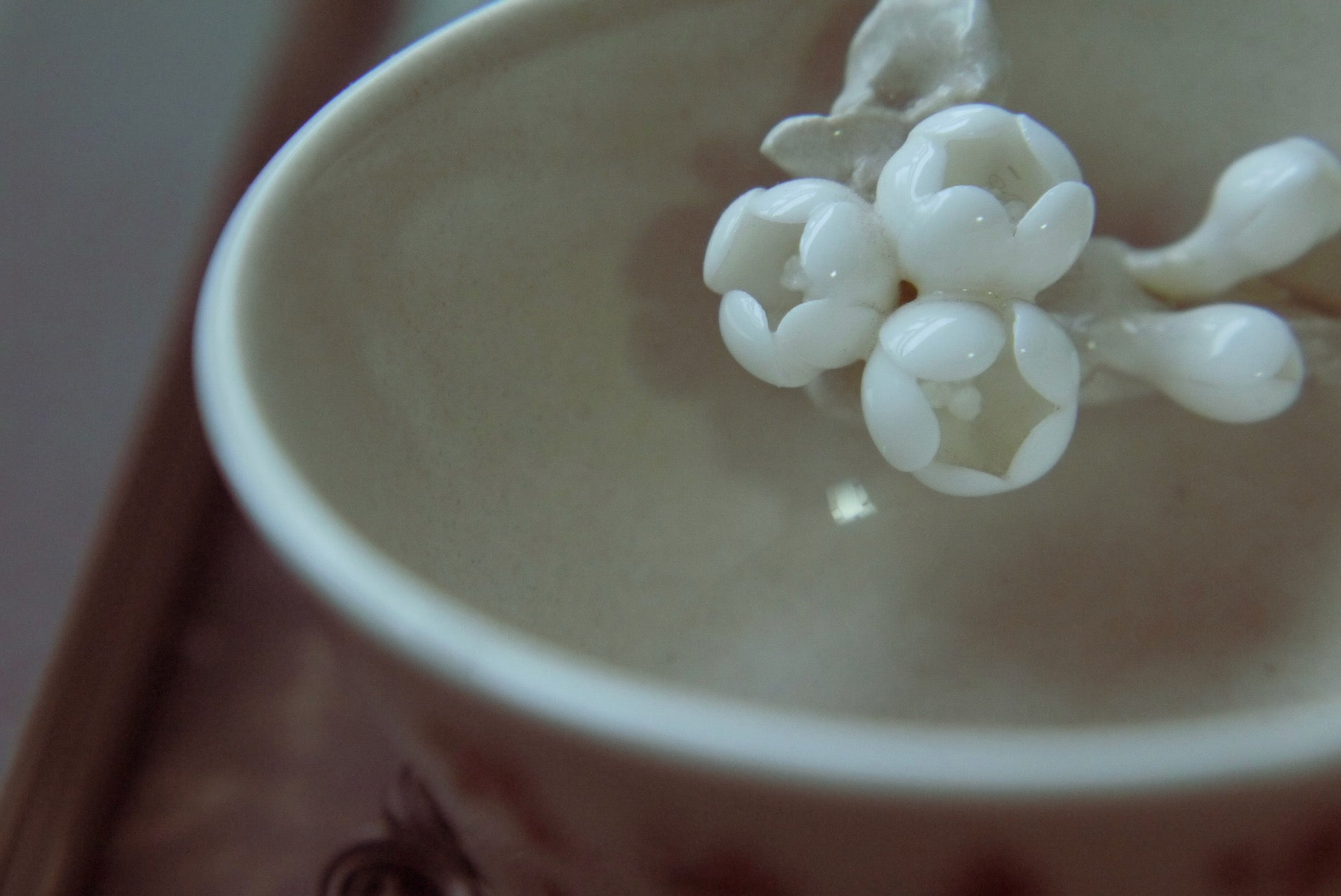
About Dehua Porcelain
Dehua Porcelain, originating from Dehua County in Fujian, China, is renowned for its jade-white body and exquisite craftsmanship. It is ideal for tea drinking, dining, decoration, and collecting.
Featured Collections
All Collections
-
Peranakan Floral Travel Set
Regular price $39.00 USDRegular price -
Donut Wayfarer Portable Teaset
Regular price $99.00 USDRegular price -
Ancient Rhythm Tortoise-Shell Teapot
Regular price $169.00 USDRegular price -
Ribbed Dehua Jade Fairness Cup
Regular price $139.00 USDRegular price -
Handmade Mutton-Fat White Porcelain Teacup
Regular price From $49.00 USDRegular price -
Handmade Zen Panda Incense Holder
Regular price $29.00 USDRegular price -
Blue Tide "Fish & Lotus" Set
Regular price $69.00 USDRegular price$9.00 USDSale price $69.00 USD -
Heritage Art White Swan Figurine
Regular price $36.00 USDRegular price -
Embossed Millefleurs Mug
Regular price $15.00 USDRegular price -
Red Portable Portable Tea Set
Regular price $69.00 USDRegular price -
Silver Leaf Lid Teapot Set
Regular price $179.00 USDRegular price -
Poetic Floral Kitten Cup
Regular price $15.00 USDRegular price -
High Handle Lion Teapot
Regular price $169.00 USDRegular price -
The Pearl Finial Teapot Set
Regular price $269.00 USDRegular price -
Silver Lion Porcelain Teapot Set
Regular price $269.00 USDRegular price -
Vintage Garden Porcelain Bird Cup
Regular price $39.00 USDRegular price
Why Dehua Porcelain?
FAQs
If Dehua porcelain has an acidifying effect on water or tea soup?
I was also surprised when asked if Dehua porcelain has an acidifying effect on water or tea soup. Dehua porcelain, known for its high-quality glaze, does not alter the pH or taste of water or tea. The glaze creates a non-reactive surface, preserving the true flavors of tea.
Dehua people are quite healthy, with an average lifespan exceeding 75 years, and they predominantly use their own ceramics. In Dehua, you rarely see ceramics from Jingdezhen, but Dehua ceramics are common in Jingdezhen. Dehua tea sets account for nearly 80% of the Chinese market share, and almost half of the daily-use ceramics in Europe and America come from Dehua. Besides leading in the sales of finished ceramics, Dehua is also a market leader in raw material supply.
Dehua artisans are dedicated to improving production efficiency and technological innovation, keeping Dehua at the forefront of the industry. This dedication to quality and innovation ensures that Dehua porcelain remains a trusted choice for preserving the purity and taste of tea.
Why isn't jade porcelain glazed?
The reason why jade porcelain is not glazed lies in its unique material and craftsmanship. Jade porcelain, also known as "kaolin porcelain," is a type of high-temperature fired ceramic made from high-quality kaolin. It has a fine texture and a translucent appearance, with firing temperatures typically above 1300°C, which gives jade porcelain extremely high density and hardness.
This high-temperature firing process results in a smooth and dense surface that does not require glazing to enhance its aesthetic appeal or waterproofing. In fact, glazing would obscure the natural luster and texture of jade porcelain. The natural beauty of jade porcelain is one of its greatest features, and the unglazed surface showcases the purity and delicacy of the raw material.
Additionally, not glazing the porcelain demonstrates Dehua jade porcelain's confidence in the quality of its kaolin and its superb craftsmanship, daring to reveal the original appearance of the ceramic. The artisans of Dehua, by preserving the natural state of jade porcelain, can better present its noble and elegant characteristics.
The production of jade porcelain requires extremely high technical skills to ensure that it does not deform or crack during the high-temperature firing process. Therefore, jade porcelain is often regarded as a high-grade ceramic product, suitable for making teaware, vases, and other art pieces and practical utensils. By maintaining the natural state of jade porcelain, Dehua showcases its noble and elegant qualities and superior craftsmanship.
Is unglazed jade porcelain safe?
Yes, unglazed jade porcelain is safe. The high-temperature firing process creates a dense, smooth surface that is non-porous and durable, making it safe for use with food and beverages. The natural state of jade porcelain is free from harmful substances, ensuring that it does not affect the taste or quality of what it holds.
Is unglazed jade porcelain easy to clean? Can it be cleaned in a dishwasher?
Yes, unglazed jade porcelain is easy to clean. Its smooth, non-porous surface prevents stains from penetrating, making it simple to wash by hand. However, it's best to avoid using a dishwasher, as the high temperatures and strong detergents can damage the delicate porcelain. Hand washing with mild soap and a soft cloth is recommended to maintain its beauty and longevity.
Is the quality of Dehua porcelain inferior to that of Jingdezhen?
The quality of Dehua porcelain is not inferior to that of Jingdezhen. Both Dehua and Jingdezhen have long histories of porcelain making, each renowned for their unique styles and craftsmanship. Dehua is famous for its white porcelain, known for its fine texture and pure, ivory-like color. Jingdezhen is well-known for its blue and white porcelain and colorful ceramics. Both regions produce exceptional porcelain, and Dehua porcelain is highly regarded in international markets, with its craftsmanship and quality widely recognized.

